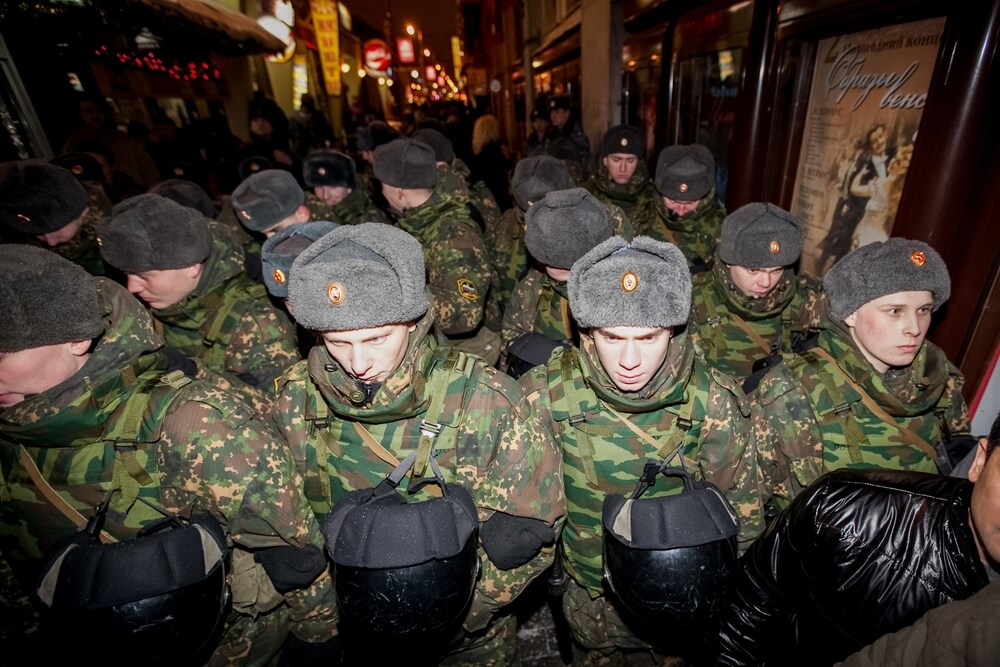The pro-Western Russian opposition has been discouraged after the delays in Western assistance to Ukraine. It sees it as a message that the West is still convinced that Russia is only a problem for Ukraine and the pro-Western Russian opposition.
Russia's pro-Western opposition was historically convinced that Russia was a global problem since the Kremlin never disguised its commitment to expanding its territory and increasing its influence and dominance globally.
The pro-Western Russian minority (those few who remained in Russia and still share anti-regime sentiments) has started to lose hope.
They have been adjusting to the fact that it would be a long time, if ever, before the West, particularly America, finally accepts that Russia has an aggressive imperial state of mind and agenda - a global issue for the free world to eventually deal with.
It was a time of joy in some Russian circles when Putin’s plan to occupy and subvert Ukraine started to fail.
A turning point
After Russia attacked Ukraine and failed to occupy Kyiv, Odesa and other Ukrainian cities, many Russians, among those who share pro-Western ideology, cheered and saluted one another. They hoped it was a turning point that would change how the West saw Russia.
The Russian opposition believed that under no circumstances could Russia be democratic, and thus, it would remain a threat to everyone around it, particularly to European countries.
Secondly, they believed that Russia's military strength was overrated.
Opponents of aggression against Ukraine became victims of the reincarnation of Soviet oppressive domestic measures
Therefore, they are convinced that the decision to stop military aid to Ukraine was wrong, just like the hesitation at the beginning of the war to deliver long-range missiles to Ukraine prevented the Russian army from collapsing and leaving newly occupied Ukrainian territory.
At the same time, opponents of aggression against Ukraine became victims of the reincarnation of Soviet oppressive domestic measures. In Russia, after February 2022, they were exposed to subversion, suffering and humiliation as the Russian (then Soviet) people did during the USSR.
Repression dating back to the Soviet times
Almost everyone is keeping a low profile. No one is raising a voice, and everyone is trying to be invisible and unnoticed.
Negligent and caressed by the authorities, once in a while Russian show stars have done something irrational, but purely because they did not understand what was going on, given that for more than 2 decades, they have existed in a parallel world for the amusement of the “Capos”: the guards and administration of the Russian camps.
Many in the state apparatus, particularly in politics and security services, started as liberals and democrats
Many in the state apparatus, particularly in politics and security services, started as liberals and democrats. But because they had to survive in the horrific environment of Putinism, they cracked, were demoralised and decided to become “Capos” in the camp of the Putin regime to survive.
Russia had a chance in 2011-2013 during mass protests in Moscow, when Dmitry Medvedev was the president. Even today's silenced opponents of Putin's aggressive policy are convinced that this chance partly failed because the opposition movement did not receive sufficient support from the West.
They believe that support was absent then, as it is now, due to the widespread Western attitude that repression in Russia is only its problem.
Adapting to the majority
The higher the expectations, the greater the disappointment. Putin's opponents were discouraged by the insufficient Western response to Russia's aggression against Ukraine.
They have a majority against them, which is subverted, scared, and demoralised, just like in the time of the USSR. However, it had a skill acquired during the USSR, which helped them survive difficult times.
 Many prominent people support Putin out of fear, and others have become "Capos" of the regime
Many prominent people support Putin out of fear, and others have become "Capos" of the regime
It has been adjusting to horrific circumstances, surviving and bending. Many prominent people support Putin out of fear, and others have become "Capos" of the regime because that has provided them with a more convenient life and various incentives. They are well aware that Putin still pays money for loyalty.
Some of those who are critical of the Putin regime join the general adjustment to difficulties. They accept the given life model, where sanctions hit the economy and everyday life hard, but they use ways to avoid blockades.
It is a state project for which minority opponents have no alternative apart from relying on Western support for Ukraine to break Russian aggression.